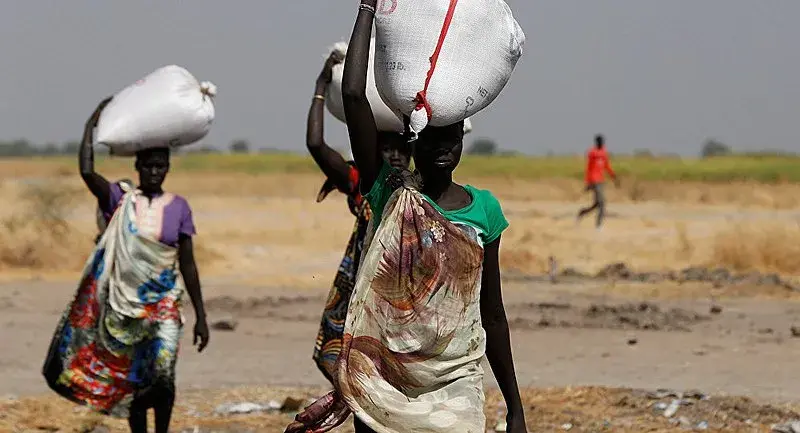More than 25 million people in Sudan, South Sudan and Chad are caught in a downward spiral of deteriorating food security.

The executive director of the United Nations World Food Program (WFP), Cindy McCain, said Wednesday that the war in Sudan, which began eleven months ago, risks becoming the world’s largest famine crisis.
At the end of a visit to South Sudan, where she met with families fleeing violence and a growing hunger emergency in Sudan, she warned that “the war in Sudan risks triggering the world’s largest famine crisis,” according to a statement from the UN agency.
“Twenty years ago, Darfur was the world’s largest famine crisis and the world mobilized to respond. But today, the people of Sudan have been forgotten. Millions of lives and the peace and stability of an entire region are at stake,” he said.
More than 25 million people in Sudan, South Sudan and Chad are caught in a downward spiral of deteriorating food security, and WFP is unable to deliver sufficient emergency food aid to Sudan’s desperate communities caught up in the fighting due to incessant violence and interference from warring parties, he warned.
Right now, 90 percent of the people facing emergency levels of hunger in Sudan are trapped in areas that are largely inaccessible to WFP.
Newly arrived displaced people in South Sudan make up 35 percent of those facing catastrophic levels of hunger – the highest possible level – despite representing less than 3 percent of the population, and in addition, one in five children in transit centers at the main border crossing is malnourished.
“Today I am urgently appealing for the fighting to stop and for all humanitarian agencies to be allowed to do their life-saving work,” he said.
The Rapid Support Forces (RSF) entered into open warfare with the Sudanese Army on April 15 last year and have since been able to control significant areas in Khartoum and the neighboring town of Omdurman.
Some 13,900 people were killed and 8.1 million people fled their homes because of the war in Sudan, according to the UN Office for the Coordination of Humanitarian Affairs (OCHA).







